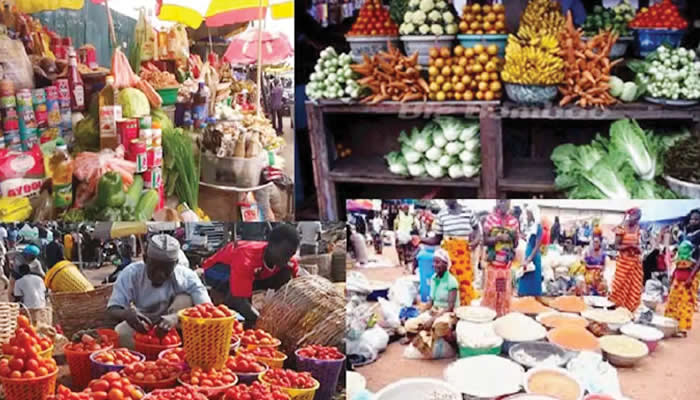Paragraph 1: Stable Food Prices Bring Relief to Lagos Residents During Easter
Despite the typical surge in demand during festive periods, Lagos residents experienced a welcome reprieve this Easter as food prices remained largely stable. Interviews conducted by the News Agency of Nigeria (NAN) with traders and consumers across various markets in Lagos revealed a general consensus on the price stability of essential food items such as rice, beans, garri, and even frozen proteins like chicken and turkey. This stability offered a much-needed respite for households preparing for the Easter celebrations, allowing them to budget more effectively and enjoy the festivities without the added burden of inflated food costs. The overall sentiment was one of relief and gratitude, as many consumers reported purchasing items at their usual prices, defying expectations of price hikes often associated with holiday periods.
Paragraph 2: Pepper Prices Soar, Becoming the "New Gold" in Lagos Markets
While the majority of food items maintained stable prices, pepper emerged as a stark exception. Traders and consumers alike lamented the dramatic increase in pepper prices, with some describing it as the "new gold." A small paint bucket of pepper, previously sold for around N4,000, now commands prices as high as N25,000, representing a staggering increase. This surge in pepper prices has significantly impacted household budgets and posed a challenge for food vendors, particularly those specializing in cooked meals. The high cost of pepper has become a major concern for consumers and traders, who are calling for intervention to address this issue and bring pepper prices back to a reasonable level.
Paragraph 3: Mixed Signals on Tomato and Vegetable Prices Amidst Overall Stability
The price of tomatoes presented a mixed picture, with some consumers reporting stable prices while others noted a slight increase. This variability likely stems from factors such as the time of purchase and bargaining skills. Similarly, vegetable prices presented a mixed bag. While some leafy greens like ugu (pumpkin leaves) and water leaf remained affordable, other vegetables used in dishes like fried rice, such as spring onions, carrots, and green peas, saw price increases. This disparity in vegetable prices suggests that specific varieties may be more susceptible to price fluctuations due to seasonal availability or other market forces.
Paragraph 4: Fluctuations in Rice Prices and Declining Prices for Oil and Condiments
The price of rice, a staple food in Nigeria, experienced some fluctuations, depending on the type and grain. Local rice remained a more affordable option compared to imported varieties, but the fluctuating prices posed a challenge for traders in setting fixed prices and led to customer complaints. Despite these fluctuations, sales of rice increased in the lead-up to Easter, although not to the same extent as in previous years. Conversely, palm oil and groundnut oil experienced significant price drops, making them more affordable for consumers. Condiments, particularly those purchased outside of supermarkets, also remained relatively inexpensive, offering further relief to households managing their Easter budgets.
Paragraph 5: Impact of Low Purchasing Power and Seasonal Demand on Food Prices
Several factors contributed to the overall price stability observed during this Easter period. Some consumers attributed the stable prices to the reduced purchasing power of Nigerians, suggesting that lower demand played a role in keeping prices in check. However, the increased demand associated with Easter celebrations also impacted certain items like pepper and some vegetables, leading to price hikes. This interplay of reduced overall purchasing power and increased seasonal demand created a complex market dynamic, influencing price trends across different food categories.
Paragraph 6: Summary of Price Trends and Consumer Sentiment in Lagos Food Markets
In summary, the 2023 Easter period in Lagos witnessed a generally stable food price landscape, providing relief for consumers. While pepper prices skyrocketed, the prices of staple foods like rice, beans, and garri remained largely unchanged. Tomato and vegetable prices presented a mixed picture, with some experiencing increases while others remained stable. The price of oils and condiments decreased, further easing the financial burden on households. This overall stability, attributed partly to lower purchasing power and partly to seasonal demand variations, allowed Lagos residents to celebrate Easter without the significant price increases typically seen during festive periods. However, the exorbitant price of pepper remains a major concern requiring attention.














